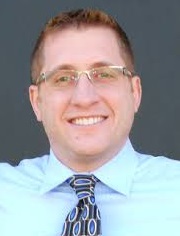 Connectivity is the Buzzword
Connectivity is the Buzzword
By Edward Keiper, President and CEO of Velocity
For physicians’ practices in the 21st century, connectivity is the buzzword. Getting doctors connected to data, patients connected to healthcare providers, and practices connected to networks are just a few of the web-fueled scenarios coming down the pike.
The Health Information Technology for Economic and Clinical Health (HITECH) Act is a game changer and affects just about every aspect of modern medical care. HITECH, part of the American Recovery and Reinvestment Act of 2009, promotes the adoption and meaningful use of health information technology.
There are four significant connectivity-related challenges that practice groups face:
1. HIPAA Compliance. The HITECH Act tackles the privacy and security issues associated with the electronic transmission of health information. It’s important to note that HITECH toughens the civil and criminal enforcement of the HIPAA rules with stiff fines for noncompliance. You need to keep track of hardware, because lost and stolen equipment can lead to data breaches. It’s important to know the rules and penalties.
2. Mobile Workforce and BYOD. Guidelines aimed at addressing the rapid adoption of mobile devices in medicine are still in the early stages. A mobile device can make a physician’s work much easier, but it makes data theft much easier as well. Additionally, many practitioners bring their own devices to work. Smartphones and tablets are quite convenient for instant access to email, phone messages and patient information. Be sure your practice has a policy in place to safeguard enterprise-owned mobile as well as BYOD.
3. Meaningful Use. Another aspect of HITECH, Meaningful Use rules state that providers are mandated to establish the meaningful use of electronic health records (EHR) by 2014 or risk receiving reduced Medicare reimbursements. Medicaid participants have a 2016 deadline. On the bright side, healthcare providers can get financial incentives for EHR use prior to the government’s deadlines. That means medical practices need to establish and demonstrate Meaningful Use now or face a penalty later.
4. Next Generation Networks. In the near future, paper records will be replaced by data transmitted instantly through networks. This development opens the door for great advances in patient care. Physician’s practices are rapidly adopting cloud storage because it’s accessible from any point in the world and allows for data collection leading to improved outcomes. Not only are providers getting benefit from the network; patient engagement increases through new apps for mobile devices. All of these developments ultimately lead to reduced time and cost as well as greater overall efficacy.
Overall, the revolution in healthcare connectivity offers promising next generation solutions to some of the most pressing healthcare concerns. Keep up with the latest developments in technology and the law to stay ahead of the game and avoid costly fines.
This article was originally published in the Velocity blog and is republished here with permission.
